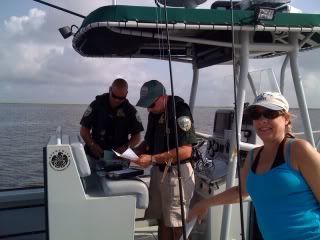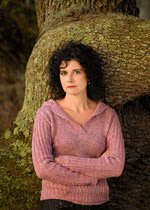I'm winding down to the end of my 30-Writing-Tips-in-30-Days marathon, and I'm thinking about the reason I started it. (And please don't worry that I'll leave you lonely when it's done. I have plans for you...)
I love to teach, and this was my warm-up to a big week of teaching next week at the Anhinga Writers' Studio Summer Workshops. I'll be leading four 90-minute workshops and meeting personally with a double-handful of students, as well as just spending time socializing and talking writing with about seventy-five people who are soon to be among my dearest friends. :-) We Anhingas are a very tight group.
My goal when I teach is to tell aspiring writers the things I wish someone had told me. Some of these things aren't easy to hear. "You need to do some revisions before you start submitting this thing to publishers and agents," is chief among them, but the advice is always delivered with love and with the belief that hard work can get people where they want to go. Fortunately, some of the advice I have to give is very pleasant to put into practice. Tonight's Writing Tip for the Practical-minded is one of those. Here 'tis:
Writing is a solitary activity. Balance yourself by reaching out to other writers.
Did I do this when I was an aspiring writer? Heck, no. During all the years I was learning my craft, I was very, very busy. How busy?
Well, I took my first serious writing class in graduate school when I was 21. I wasn't really supposed to be taking that class, being as how I was pursuing a master's degree in chemical engineering as fast as humanly possible, but I needed something in my life besides coursework in fluidized bed heat transfer and advanced transport phenomena. I wrote in spare scraps of time during the year I was taking classes, then I took a job teaching community college math and physics during my last semester, as I finished my thesis.
A year later, I had my first child, dropped back to teaching part-time, and wrote when he was napping. Just over a year later, I had my second child, moved to Florida, and wrote whenever I could get them both to nap. Just over a year later, I divorced, took a full-time job as an engineer, and wrote when my kids were asleep at night.
What is conspicuously absent here? Um...publication. And contact with other writers.
A couple of years later, I remarried and found some time to attend occasional meetings of local writer's groups, but publication still eluded me. A couple more years later, I was on bedrest for most of my third pregnancy, so I split my time between continuing my work as an environmental consultant and writing an environmental thriller. Because I'd never written anything book-length before and I wasn't sure I could, I took a correspondence course in novel-writing, and it's one of the best decisions I ever made. I couldn't leave my house to get companionship from other writers, per medical orders, but I could do it by mail. (And yes, in 1995, I took that course by snail mail. If you take a similar course, it will be online and your life will be much easier than mine was.)
That third baby was three before I finished the environmental thriller, but I did finish it, and it got me my agent, Anne Hawkins. Having had Anne's literary companionship for 12 years has made my writing life a lot less lonely and a lot less scary. She not only believed that my work was good, but she was willing to risk her valuable time on it, because she thought that it would one day make her some money. How cool is that?
Anne and I were together five years before we sold
Artifacts 
, but the sale brought me more literary companionship--an editor, a publisher, and the folks at the publishing house who make things happen. The need to publicize the books took me to writers' conferences and readers' conferences and bookstores and libraries, where I met the people who read my books, as well as other writers who were hoping to publish theirs. Wonder of wonders, I also met anthology editors who have since published my short stories and essays.
Now, listen closely. I learned that my agent Anne and my editor Barbara attend writers' conferences, looking for new talent. I learned that they had both been at conferences that I could have attended but didn't because...well, look back a few paragraphs and tell me when I would have had time. Still, if I'd gone, my work might have seen print years earlier than it did...if I'd had time to write it. Yes, I know that lack of time is a vicious cycle. All we can do is the best we can.
So if anybody reading this will be with us at the Anhinga conference this week, welcome. You're doing a wonderful thing for yourself.
If any of you would still like to come, well, it's almost too late but not quite. Drop me an e-mail, like...now.
If you're interested, but this is just not the time, watch this space for developing news. We're streamlining our programs for the upcoming year. Instead of one monster conference, we'll be doing several "lock-ins," where a small number of attendees will spend an intense weekend with just one instructor, with the goal of walking away with new skills and a significant piece of writing done. If you want face-time with someone who can kick-start your work, plan to join us. And if you're a fiction writer, know that the someone doing the kick-starting will be me. :-D
Reach out to other writers because you can learn from them. Reach out to them because they might soon be reporters who can cover your work or editors who can get your words out into the world. Reach out to them because it will feed your soul.
You'll be glad you did.
Mary Anna



















